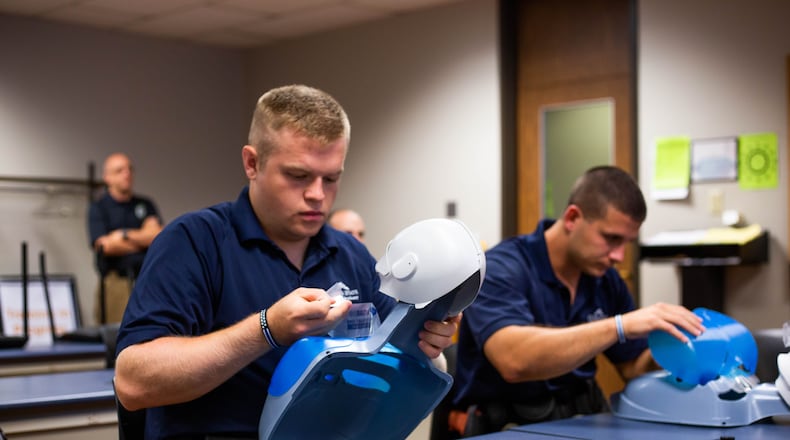“We will continue to set our goal to improve those numbers as we look towards the future with law enforcement training,” he said.
After completing the academy training and passing all Ohio Peace Officer Training Commission requirements, a cadet is qualified to take the Ohio Peace Officer Training Commission (OPOTA) State Certification Exam (SCE), which is a 2.5-hour test of 200 questions based on 800 performance objectives. After passing the SCE, the graduate can then qualify to be an Ohio certified peace officer.
“Clark State is a leader in developing peace officers to serve their communities with skill and integrity,” said President Jo Alice Blondin, who praised Weber and the program’s instruction.
Along with the successful pass rate, Weber was also nominated as the Outstanding Ohio State Patrol Retired Officer in the Ohio District 5 Region in 2020. He served in law enforcement for just over 30 years before he began teaching in the Criminal Justice program at Clark State in 2011, then later became the commander of the academy.
The college offers four peace officer training academies each year — four-month daytime academies and six-month evening academies that are each held twice a year. Each academy is limited to 25 cadets who must be 21 years of age at the time they take the state certification exam, have a valid Ohio’s driver’s licenses, a high school diploma or GED equivalent, and cannot have any felony or violent misdemeanor convictions.
Prospective cadets are required to complete the OPOTA application and other required forms as well as pass a physical assessment test, a physical, a drug screen and be fingerprinted for a BCI background check.
For more information on the academy, contact Weber at weberp@clarkstate.edu.
About the Author

